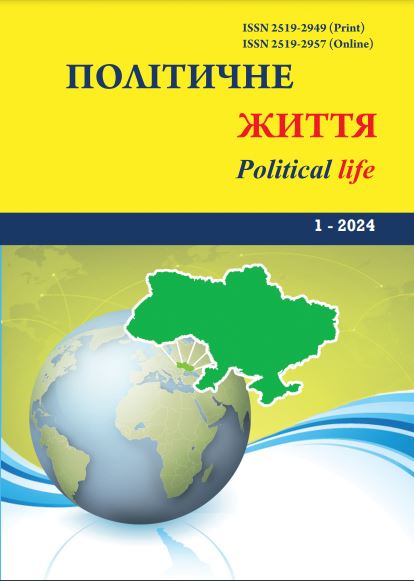Informal prison hierarchies and prison subculture as an element of power relations in modern prisons: "S.P. v. Russia" and the new approaches of the European Committee for the Prevention of Torture
DOI:
https://doi.org/10.31558/2519-2949.2024.1.17Keywords:
torture; ill-treatment; European Court of Human Rights; European Committee for the Prevention of Torture; informal prison hierarchies; prison subculture; prison system; prison; violence; Ukraine; Moldova; RussiaAbstract
The article analyses one of the most important decisions in the case law of the European Court of Human Rights, which directly concerns the functioning of informal prison hierarchies and the existence of prison subculture in prisons in modern countries, namely the decision in the case of "S.P. and Others v. Russia".
The article also analyses the report of the European Committee for the Prevention of Torture based on the results of its visit to Moldova in December 2022.
The article argues that post-Soviet informal prison hierarchies and the simulacrum of prison subculture have their own unique specificity, which makes them unlike any other national or regional examples. Historically, informal prison hierarchies in the Soviet Union were always used to exercise total and totalitarian control over huge masses of prisoners, which was clearly beyond the power of formal prison administration alone.
Accordingly, the "license for violence" given to "criminal" prisoners against "political" prisoners in Soviet times, the modern Russian forms of torture practices organised from above on the instructions of the prison system leadership, and the formation of paramilitary units from Russian prisoners to participate in the War against Ukraine in 2022-2023 all reflect the negative and unique specificity of the Soviet (now Russian) simulacrum of prison subculture.
The modern Russian subcultural prison simulacrum is a tool with a dual nature. On the one hand, it is about total control over its own citizens. On the other hand, it is a form of importation of imperial narratives to Ukraine and other neighbour states, bypassing state borders and, as today, the front line, thanks to the international external attributes of this simulacrum.
Therefore, while in most countries of the world the phenomenon of informal prison hierarchies is an indicator of how a national prison system is corrupted, and the prison staff is involved in the orbit of organized crime, the post-Soviet phenomenon, which can hardly be called "similar," is an indicator of how much the Russian authorities have the resources to import their imperial influence into the territory of neighbour states.
The article concludes that informal hierarchy is an ingrained feature and a common practice in many prisons; it is a characteristic of Ukraine, Moldova, Georgia, etc. (not to mention Russia).
An interesting feature of this ECtHR judgment is that the Court indirectly mentioned elements of the concept of a person’s dangerous state, declaring "potential predators" in the context of the formation of power relations in prisons.
References
«S.P. and Others v. Russia», applications №№ 36463/11, 11235/13, 35817/13, 44982/15, 49247/15, 77227/16, 78224/16, 45049/17, 52291/17, 69425/17, 70086/17, judgment 02.05.2023
Report on the ad hoc visit to Moldova carried out from 5 to 13 December 2022.
Report on the visit to Moldova carried out from 28 January to 7 February 2020.
Report on the periodic visit to Lithuania carried out from 10 to 20 December 2021.
Yagunov, D. A Simulacrum of Prison Subculture in the Practices of the European Court of Human Rights and the European Committee for the Prevention of Torture. European Political and Law Discourse. 2023. 10. 2. Pp.13-32.
Yagunov, D. The Concept of Total Institutions in Modern Standards of Prison Management. European Political and Law Discourse. 2023 10. 3. Pp.63-99.
Yagunov, D.; Melnychuk, T.; Meliukhov, V. The prison gang as a «brand» (an overview of informal prison hierarchies in modern prison systems). Political Life. 2023. 4. Pp.47-65.
Yagunov, D.; Polovyi, M.; Tupchiienko, D.; Melnychuk, T.; Starenkyi, S.; Sokalska, O.; Chernousov, A.; Trokhymchuk, V.; Anishchenko, V. The Phenomenon of Informal Prison Hierarchies and the Simulacrum of Prison Subculture in Contemporary Power Relations. European Political and Law Discourse. 2023. 10. 4. Pp.5-55.

